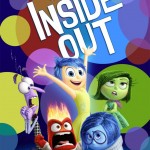2013 Update: I haven’t seen Memento in many years, but I feel that I have seen enough Christopher Nolan movies to last a lifetime. It saddens me that Nolan seems stuck on telling stories about men who, trapped in desperate circumstances, can find hope only in violent resistance. He knows that to fight is to get your hands dirty, but he seems to see no other meaningful way to live. I’ve grown tired of that vision. But I suspect that I will admire Memento more than ever next time I see it, because it was a film that Nolan made with very few resources. And it didn’t have that overbearingly dire musical score that has become predictable and unimaginative in his recent films.
–
Christopher Nolan’s riveting breakthrough feature, Memento, puts its audience to work. We’re asked to re-orient ourselves with every new scene, finding our bearings and figuring out just what the heck is going on… just as the hero tries to do the same thing.
A Polaroid photograph slowly fades during the opening credits. But wait, don’t Polaroid photographs materialize? Something’s wrong. Time is running backwards.
Like that Polaroid, Leonard’s short-term memories fade within minutes. He’s a sick and desperate man, groping and grasping at what details he can, scrawling down notes for himself obsessively so he doesn’t forget the most important details of his life. He takes the current circumstance, the current conversation, the current quiet moment in a hotel room, and has to piece together what he’s doing there, how he got there, and what he’s supposed to do next. He covers himself with notes, even tattoos the most important facts of his life all over his body, so he won’t lose track, so he won’t fail in his objective.
And he has a severe objective. As one tattoo across his chest announces to him several times a day… J. G. raped and murdered his wife. It was that trauma that took away Leonard’s memory, and that trauma that defines his life from moment to moment now. He will have revenge. He will find the guilty “J.G.” and kill him.
Of course, this is tricky business, especially because Leonard doesn’t don’t know who to trust. Is “Teddy”, who acts like his friend, really telling him the truth? How does he know that beautiful woman named Natalie? She certainly knows him! Who beat Natalie up, and gave her that nasty scar? Is that running man chasing Leonard, or is Leonard chasing him? Why is there a gun in Leonard’s motel room drawer? Is it his? Is this even his room? And that note in his pocket…the message he wrote on it may have seemed crystal-clear at the time, but now it’s as cryptic as ancient runes.
Few thrillers have ever demanded our undivided attention like Memento. It makes the mysteries of The Sixth Sense seem like kids’ stuff. Even The Usual Suspects is simple by comparison. At the end, you most likely won’t have everything figured out. But that’s the fun of it… chasing the innumerable red herrings and zeroing in on what was real and what was a ruse.
Christopher Nolan directs the film with efficiency. The script is taut with sweat and panic. Guy Pearce, who was such an intriguing lead in L. A. Confidential is perfectly cast here. And Carrie-Ann Moss delivers another surprising performance which, set alongside her work in The Matrix and Chocolat, should vault her into the upper echelons of respected and versatile actresses in Hollywood. And Joe Pantoliano, one of the great supporting actors of recent years, is effective as the suspicious friend Teddy, with his Jack Nicholson grin and his exasperation.
I can’t tell you any more about the story in this review without spoiling something. But I do think Memento is about more than just its story.
Like all great film noir, its hero is questing against all odds to accomplish some desperate mission, lonely, in an unfriendly world where everybody has their own agenda. Memento is as bleak as they come. But sometimes staring into humanity’s heart of darkness is a healthy thing. This dark dangerous cinematic world is uncomfortably close to the truth.
All of us have had moments when we’ve been starved for a glimpse of human kindness, surrounded by road rage, office politics, crime, betrayals, or just the headlines on the news. Leonard is desperate for a friend.
But then again, he himself is a rather nasty piece of work. The energy he puts into his revenge mission doesn’t turn him into anything like a William Wallace or a Maximus. Here’s a movie that knows revenge is not a noble pursuit, but is instead a path in which your hands just get dirtier and dirtier. The desire to retaliate feeds an unhealthy hunger, not a virtuous one. Perhaps we should take comfort in God’s assurance that “Vengeance is mine” — who else is in a position to judge?
Right after seeing Memento, I was troubled by the way everything moved in a downward spiral, uncovering layer upon layer of hatred, blackmail, selfishness, and hardened intent for evil. But my admiration of the film’s design increased the more I thought about it as well. Critic Peter T. Chattaway, in a discussion of this film, made some very good points: “Personally, I don’t mind a little bleakness once in a while; I’ve always been the sort of person who preferred Judges to Joshua, Ecclesiastes to Proverbs, Job to Deuteronomy. But I think this film acts as a cautionary tale, in some ways; [Leonard] is so determined to kill, so willing to impose a violent form of justice on the world, that he sets himself up for exploitation.”
And the film does more than illustrate the danger of being resolved to violence. There are also a host of healthy questions the film can provoke in those willing to pursue them. Here are a few that came to my mind:
- How much of your life is habit?
- How much of your daily routine is the result of conditioning?
- How much of your life do you take for granted?
- Which of your assumptions about life might prove to be built on a false foundation?
- How much of our faith do we base on the credibility of writers, believers, and thinkers that we have never met, whose authority we have never really questioned?
- How much proof do you require to trust somebody?
- What have your friends done to earn your confidence?
- How sure are you that your memories contain enough information to represent the truth of events long past?
Surely these are questions that can be destructive. They can lead to paranoia.
But I think, in the right light, they can remind us that everything we think, say, or do is an act of faith.
Every moment of our lives, we respond based on very sketchy information. If we interpret that the world around us is doomed and without hope, we will act very much like Leonard, seeking frivolous satisfaction that we can get through selfish means. If we interpret the world around us as being full of signs, signs that point toward a grand design, and thus a Grand Designer, then we need not let fear drive us. The suggestions of such a hope are everywhere, in the beauty and kindness around us…the love that has no reason to exist at all… but does.











